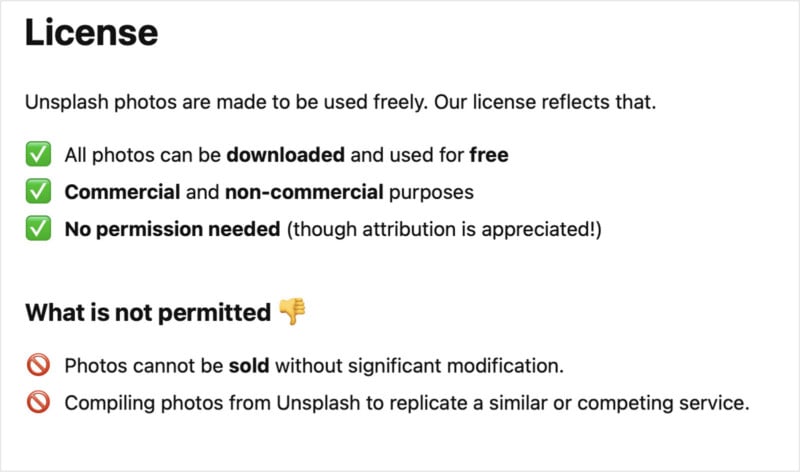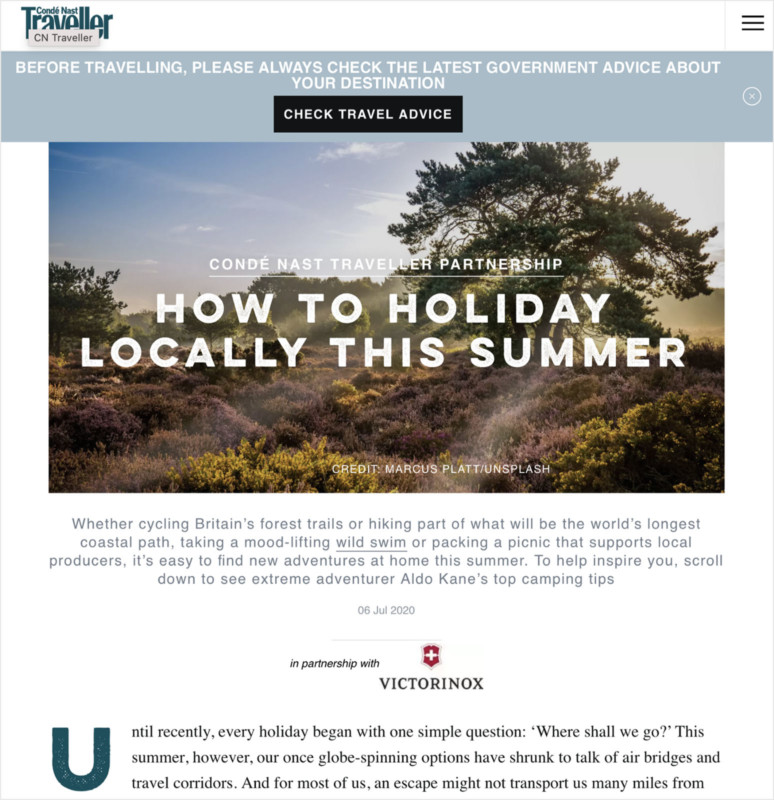I Made a Mistake and Gave My Photos Away for Free on Unsplash
![]()
I’m sure most photographers have heard of Unsplash, the free-to-use stock image website. You upload any of your photographs, then after a short moderation process, they become available in the Unsplash library for anyone to download and use in any way they like.

During the UK Covid-19 lockdown period, I uploaded some of my favorite shots to Unsplash. Mainly as I was bored and, if I’m honest, to gain a warm fuzzy feeling that comes with having my photo’s appreciated. What harm could it do?
Upon reflection, I’m sure it did cause some harm to someone, somewhere. Ultimate costing someone a sale of a photo.
I’m an amateur photographer. I take photos for fun. I’m thankful to have a full-time job that I don’t dread dragging myself to every day. However, many photographers are trying to earn a living from photography, and I now feel pretty rotten about using Unsplash.
In mid-2020, I created an Unsplash profile and uploaded an initial 10 of my favorite photos. A couple of days after my first submission, all of my photos were accepted into the Unsplash library. I then uploaded a small number more over the coming weeks, as Unsplash limits the number of images you can upload when you are just starting out. Next, I’d check the view and download stats and enjoy the idea that people were viewing my photos and downloading them.
Then one of my photos was selected to the Unsplash editorial section, and I saw a significant jump in views and downloads. The warm fuzzy feelings I was looking for had arrived.

The fact that no one was reaching out to me to say they were using my photos was a little disappointing. However, the Unsplash terms and conditions state attribution to the photographer isn’t needed, but “attribution is appreciated,” states the Unsplash site.
I’d often do a reverse image lookup in Google Chrome to see where my photos were being used, just for fun and boost my confidence.


I’d find my photos used on small blogs and websites. Sometimes my images would have my name against them. But not always.
I smiled when I found one of my photo’s on a religious website but without any credit that I took the picture. Not very Christian at all.
Then I came across one of my photos on the Condé Nast Traveller website, complete with a credit. MARCUS PLATT/UNSPLASH. Hurrah!

I felt enormously proud. It was the lead image on an article titled, “How to Holiday Locally This Summer.” I shared the link with my friends and family, who were, of course, impressed that my photo was used by Condé Nast Traveller. How incredible, I’d almost attained rock-star kudos!
I was asked by friends if I made any money off it? “No, I take photos for fun. They are not that good,” I would reply.
Why was a big worldwide magazine-based website using my free photo over a paid stock photo? My image was obviously pleasing to the eye, but I’m sure there were better photos available on paid stock sites. Was it because my picture was free? Looking at the other excellent images in the Condé Nast article, I could see no attribution to them. Reverse image lookup on those found that these were also Unsplash images, but these photographers didn’t even get a credit!

The question continued to gnaw away at me. Why would a large travel magazine website use free Unsplash photos? It felt uncomfortable to me. I know Condé Nast has done nothing wrong with using my image. However, they have monetary resources to buy stock photography, unlike a small blog or Medium post, the audience I assumed Unsplash caters for most.
Eventually, I recognized that I had effectively denied a sale to a professional photographer in some way. Whether it was a single stock photo sale or something more. Also, I’ve got no idea if my photo was used in the magazine print version or even a 30ft billboard somewhere in the world. Probably not in my case, but I bet some Unsplash photos have been used like this.
My need to have my ego stroked had potentially cost a ‘professional’ photographer a sale of some kind. That’s not a value I want to be associated with me.
Professional photographers work hard creating photos to sell to clients, and when someone like me (without malice) impacts their livelihood by giving away a possibly inferior image for free through Unsplash is wrong.
No one should give away their photos for free if they are going to be used commercially.
I have now deleted my Unsplash account, and if I feel the need for that ‘warm fuzzy feeling’ of approval, I’ll be content with the likes and hearts on my website or social media.
So, to all photographers trying to earn an income of some kind through photography: I’m sorry I used Unsplash.
Please forgive me?
The opinions expressed in this article are solely those of the author.
About the author: Marcus Platt is a photography enthusiast and a self-described general geek based in the UK. You can find more of his work and writing on his website, Facebook, Twitter, and Instagram. This article was also published here.
Image credits: Header photo licensed from Depositphotos
from PetaPixel https://ift.tt/2Xvm8dv
via IFTTT
Comentarios
Publicar un comentario